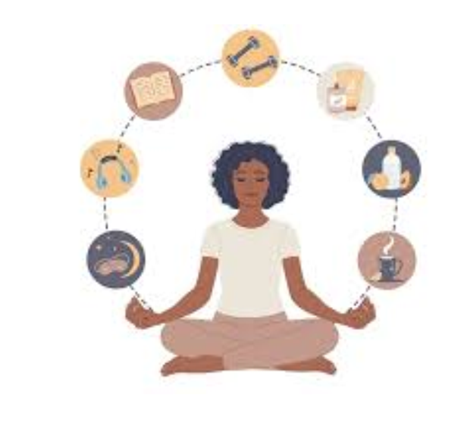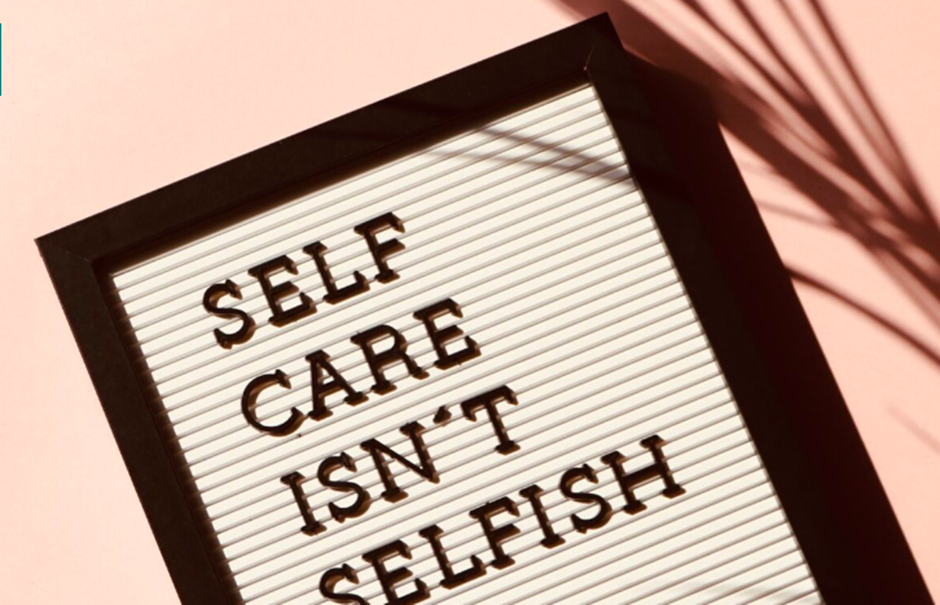Self-Care
- rakheevarma645
- Mar 11
- 3 min read
A Journey to Creating a Better You
Understanding Self-Care
The World Health Organization (WHO) defines self-care as "the ability of individuals, families, and communities to promote health, prevent disease, maintain health, and cope with illness and disability with or without the support of a healthcare provider." In simple terms, self-care refers to the practices that enhance both physical and mental well-being, ensuring a balanced and fulfilling life.

Why Self-Care Matters
Taking care of oneself is crucial for a happy and healthy life. Emotional self-regulation plays a vital role in self-care, allowing individuals to process emotions effectively. Research indicates that good emotional control contributes to overall well-being. Simple habits like eating a balanced diet, getting enough sleep, and practicing mindfulness can significantly impact one's health. Prioritizing self-care leads to improved personal and social well-being.
A Slovakian study (Gavurova et al., 2022) examined the link between depression and self-care among 806 participants. It found that individuals who engaged in self-care practices experienced lower levels of depression.
Types of Self-Care
1. Physical Self-Care
Physical self-care involves activities that maintain one's physical health. A 2016 study on college students highlighted that good self-care habits, such as healthy eating and adequate sleep, improve academic performance and engagement.
Examples include:
Eating nutritious meals.
Staying hydrated.
Maintaining personal hygiene.
Engaging in physical activities like walking or stretching.
2. Mental Self-Care
Mental self-care focuses on practices that maintain a positive relationship with the mind. Activities that stimulate and engage the brain contribute to mental well-being. Examples include:
Reading books.
Learning new skills or hobbies.
Practicing mindfulness.
Taking digital detoxes.
3. Emotional Self-Care
Managing emotions effectively is essential for overall health. Emotional self-care helps in developing resilience, empathy, and coping mechanisms.
Examples include:
Journaling.
Meditation.
Practicing gratitude and self-compassion.
Setting and maintaining personal boundaries.
4. Spiritual Self-Care
Spiritual self-care involves activities that nourish the soul and bring inner peace. Examples include:
Engaging in prayer or meditation.
Practicing yoga.
Spending time in nature.
Self-reflection.
Steps to Start Your Self-Care Journey
1. Prioritize Sleep
Quality sleep is essential for mental and physical health. Avoid caffeine and screen time before bed, and create a relaxing bedtime routine.
2. Take Care of Your Gut Health
A healthy gut influences both physical and emotional well-being. Consuming whole foods and probiotics can help maintain gut balance.
3. Learn to Say No
Overcommitting can lead to stress and burnout. Set clear boundaries and prioritize your well-being without guilt.
4. Spend Time Outdoors
Nature has a calming effect, reducing stress and enhancing overall well-being. Activities like walking, gardening, or hiking can help improve mood and energy levels.
Myths About Self-Care
1. Self-Care is Just Indulgence
Self-care is more than occasional spa treatments. It includes essential habits like setting boundaries, maintaining emotional health, and engaging in meaningful activities.
2. Self-Care is Selfish
Caring for yourself does not mean neglecting others. In fact, it allows you to be more present and supportive in your relationships.
3. Self-Care is a One-Time Activity
True self-care is an ongoing process. It involves consistent efforts to nurture physical and emotional health.
Case Study
Chronic Stress and the Importance of Self-Care
Background
A 35-year-old marketing manager faced chronic stress, fatigue, and neglect of personal well-being due to a high-pressure job. Over time, she experienced burnout, anxiety, and low self-esteem.
Symptoms Observed
Physical: Fatigue, headaches, appetite changes, sleep disturbances.
Emotional: Irritability, social withdrawal, decreased motivation.
Behavioral: Workaholism, neglect of personal relationships, poor dietary choices.
Intervention & Recovery
By incorporating self-care into her routine, she gradually restored balance in her life:
Sleep Hygiene: Regular bedtime and reduced screen time.
Balanced Diet: Whole foods and planned meals.
Exercise: Short walks and yoga.
Hobbies & Socialization: Reading and reconnecting with friends.
Self-Reflection & Gratitude: Practicing daily gratitude.
Outcome
With these changes, she experienced reduced stress, better health, and improved work-life balance. The key was consistency and prioritizing self-care as a necessity rather than a luxury.

Self-care is not just about feeling good in the moment—it’s a lifelong commitment to your well-being. By integrating these habits into daily life, individuals can achieve a healthier, happier, and more fulfilling existence.




Comments